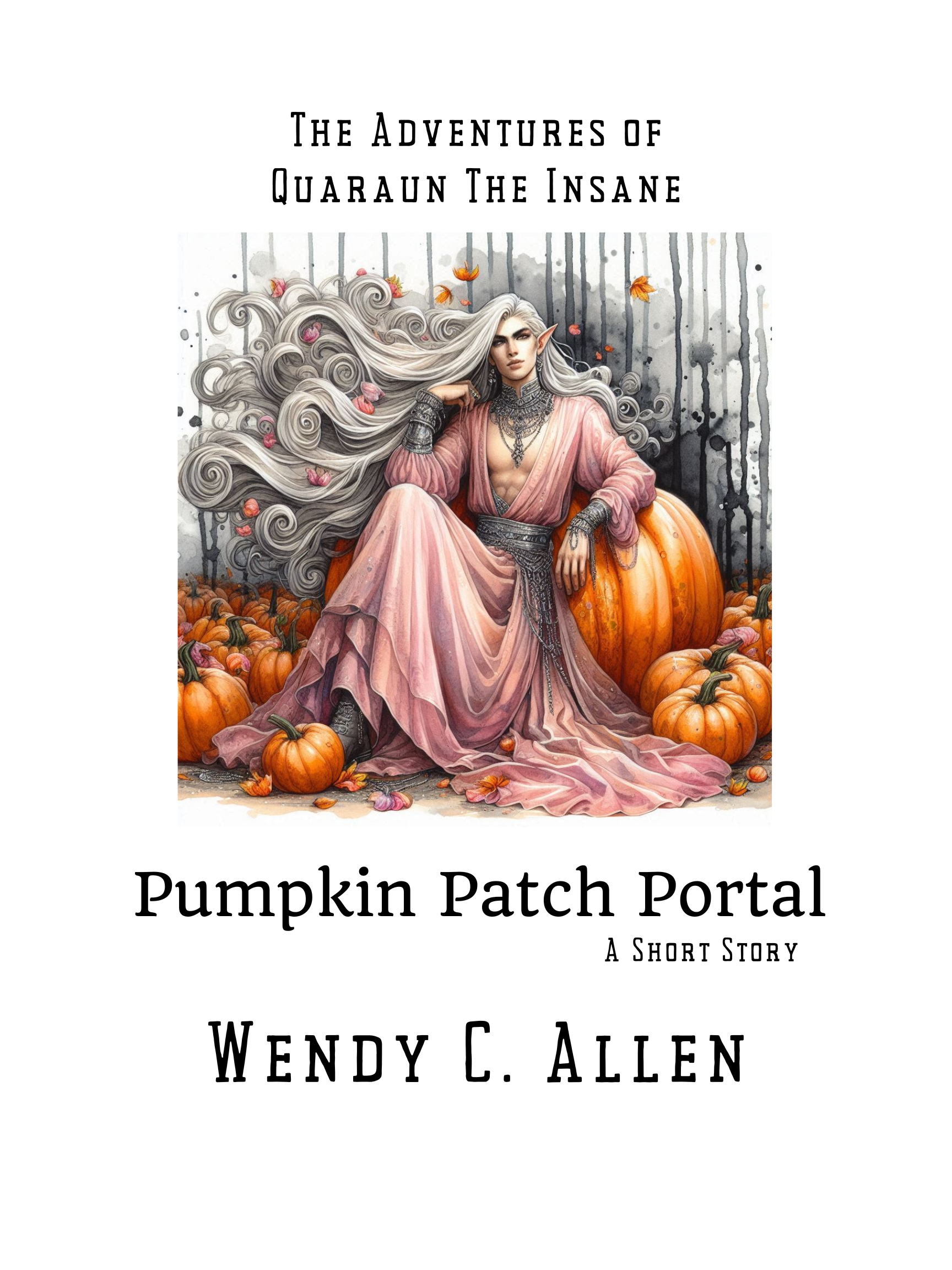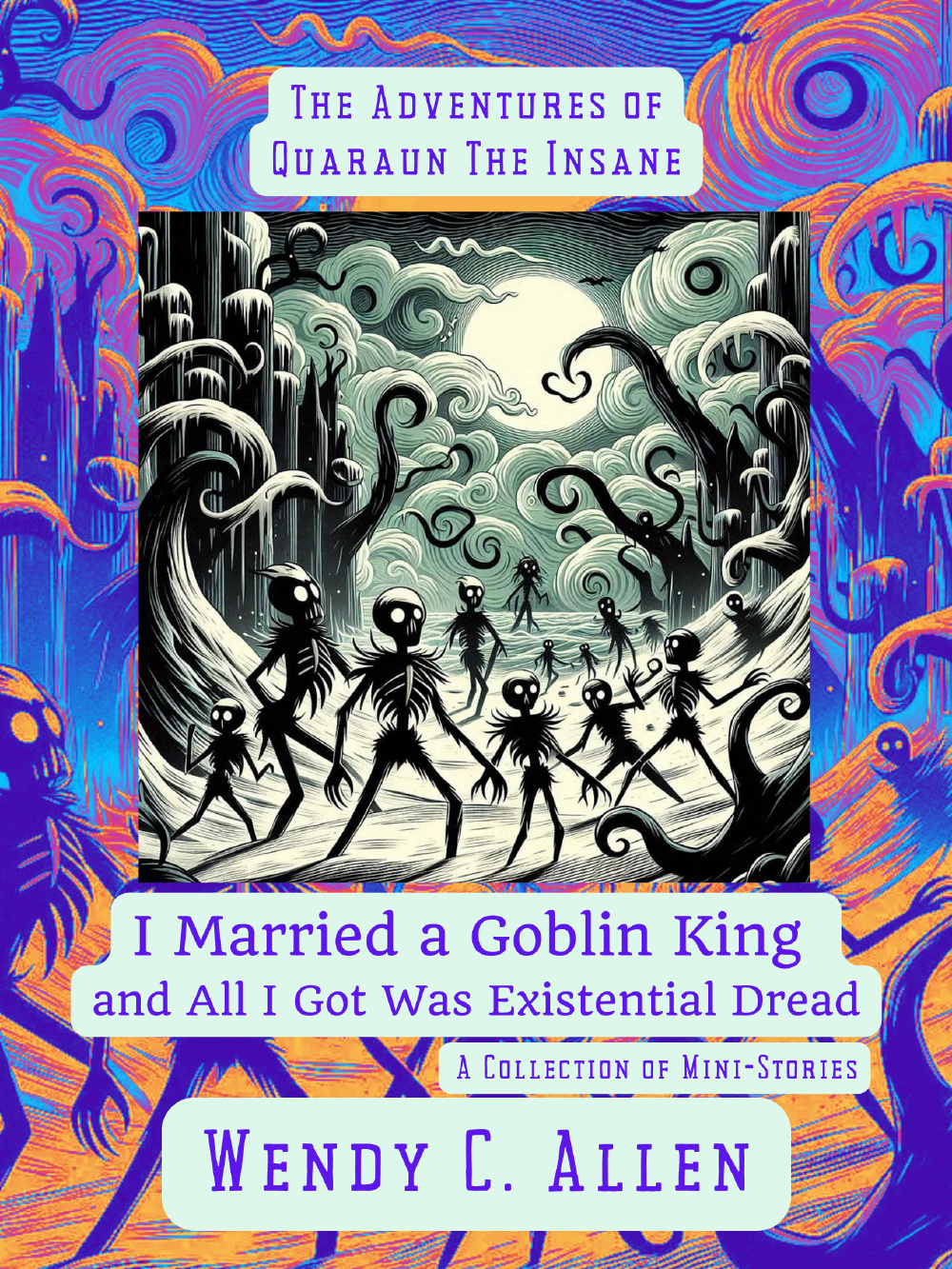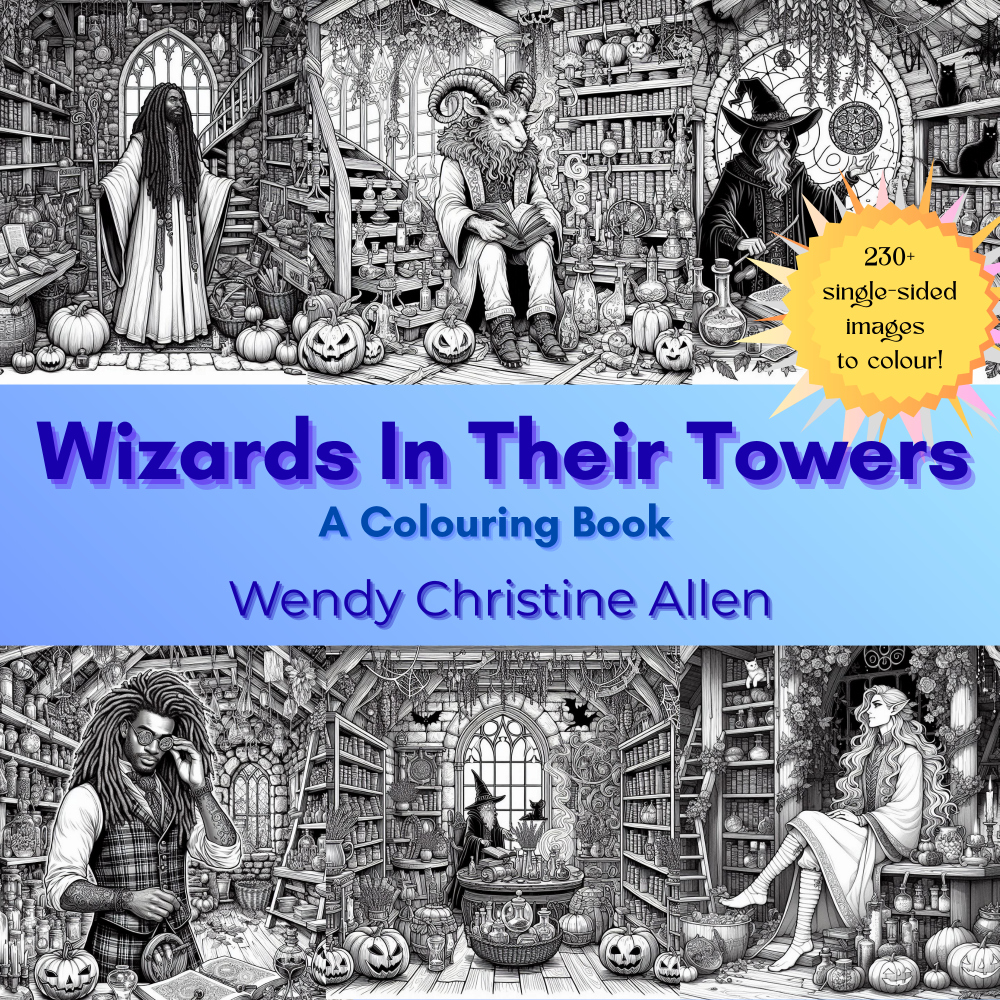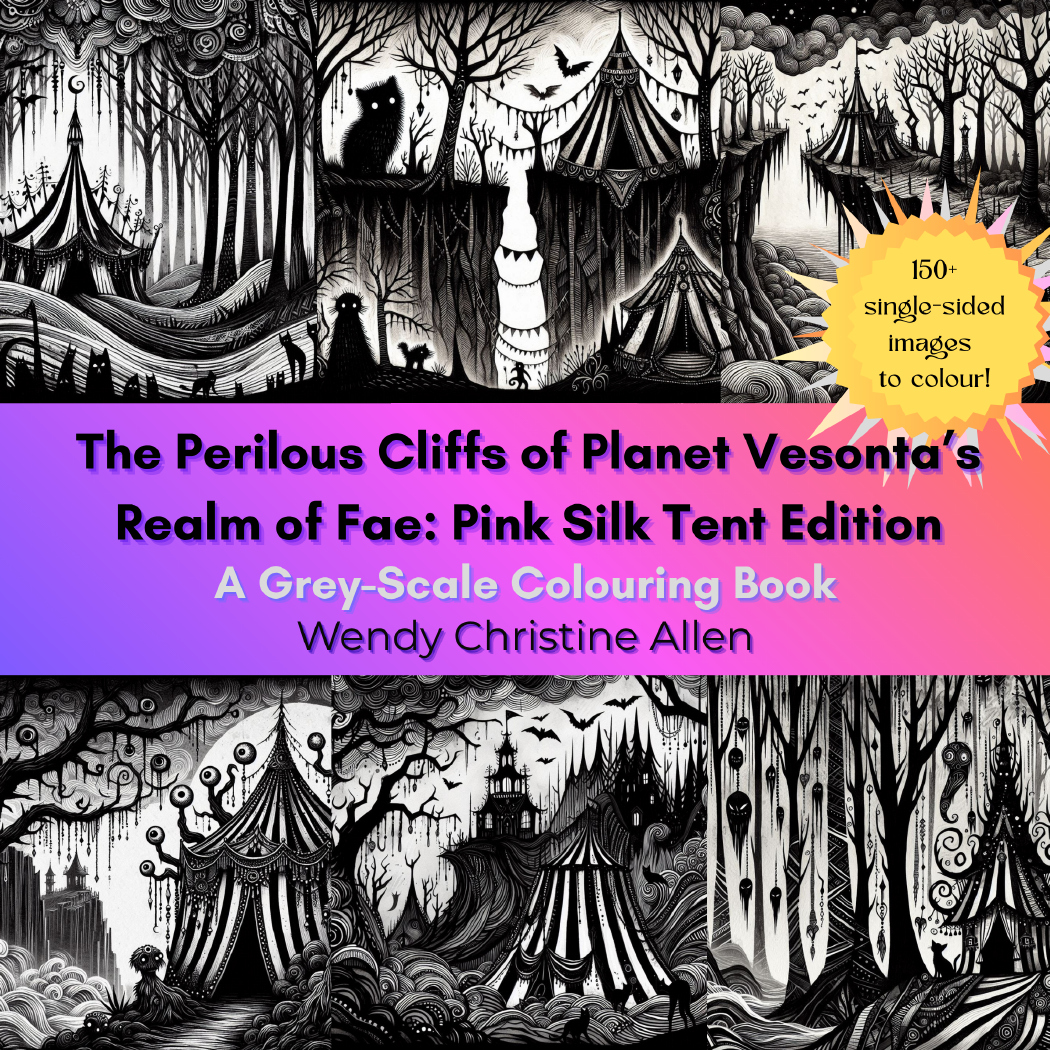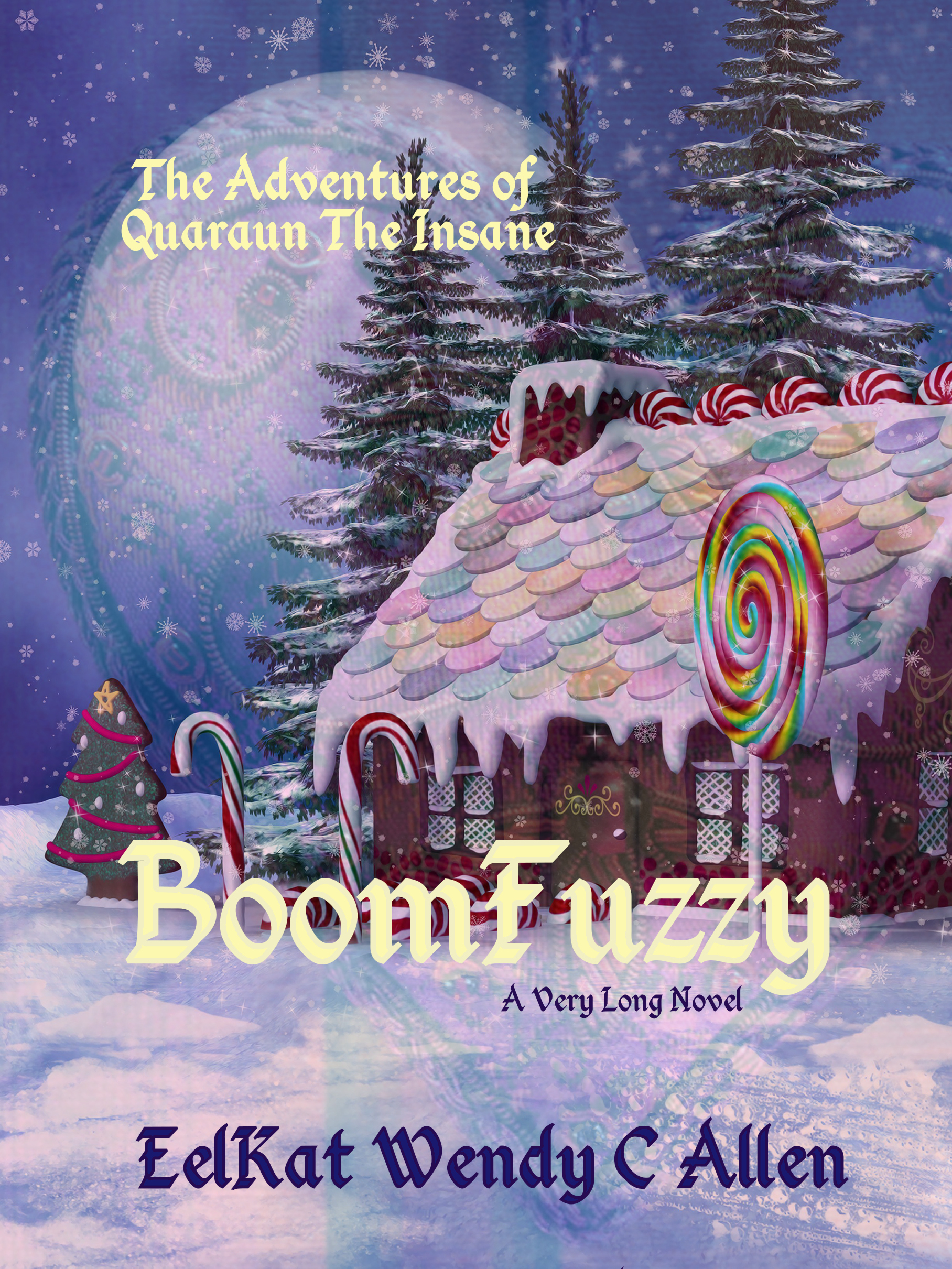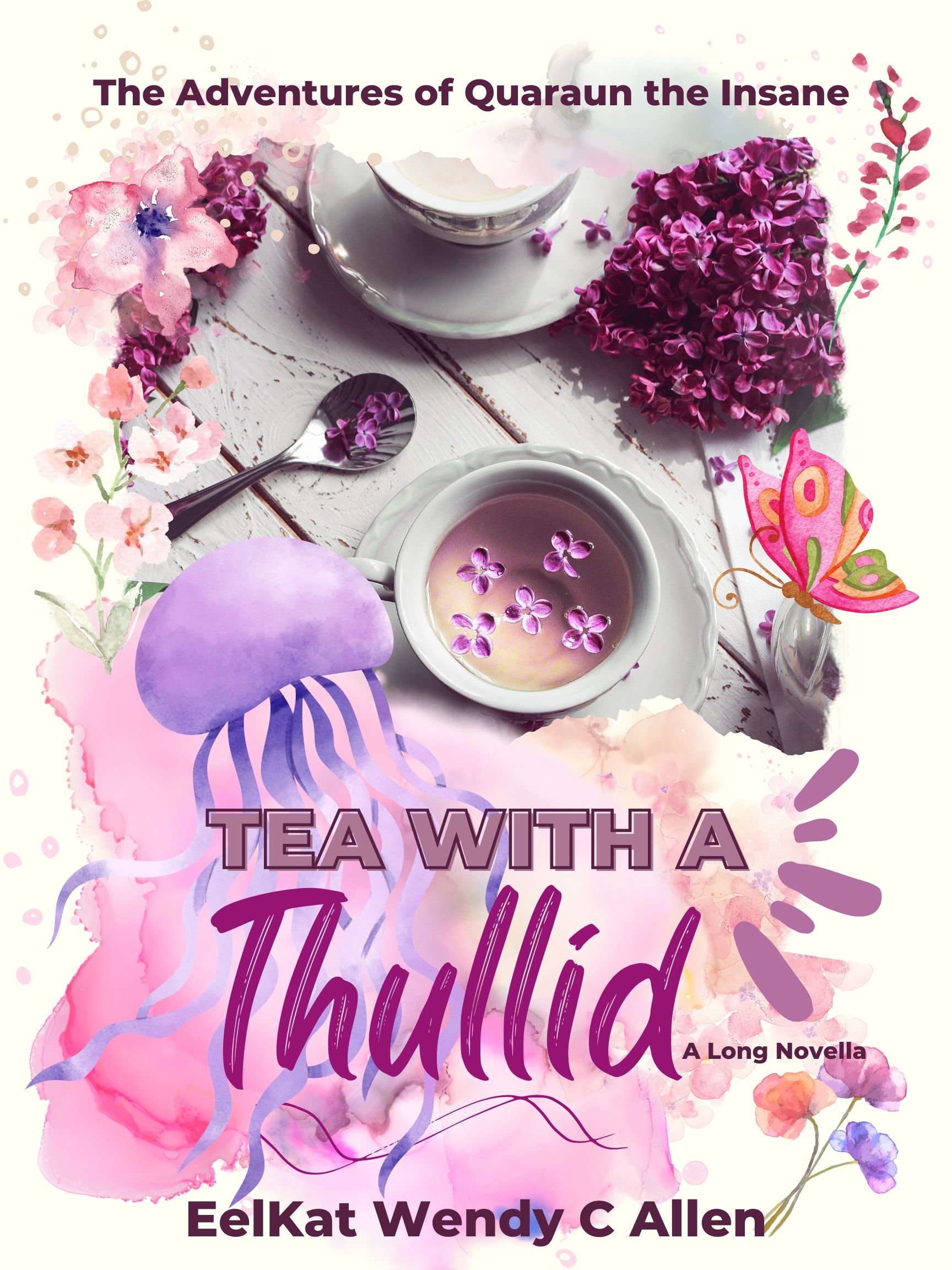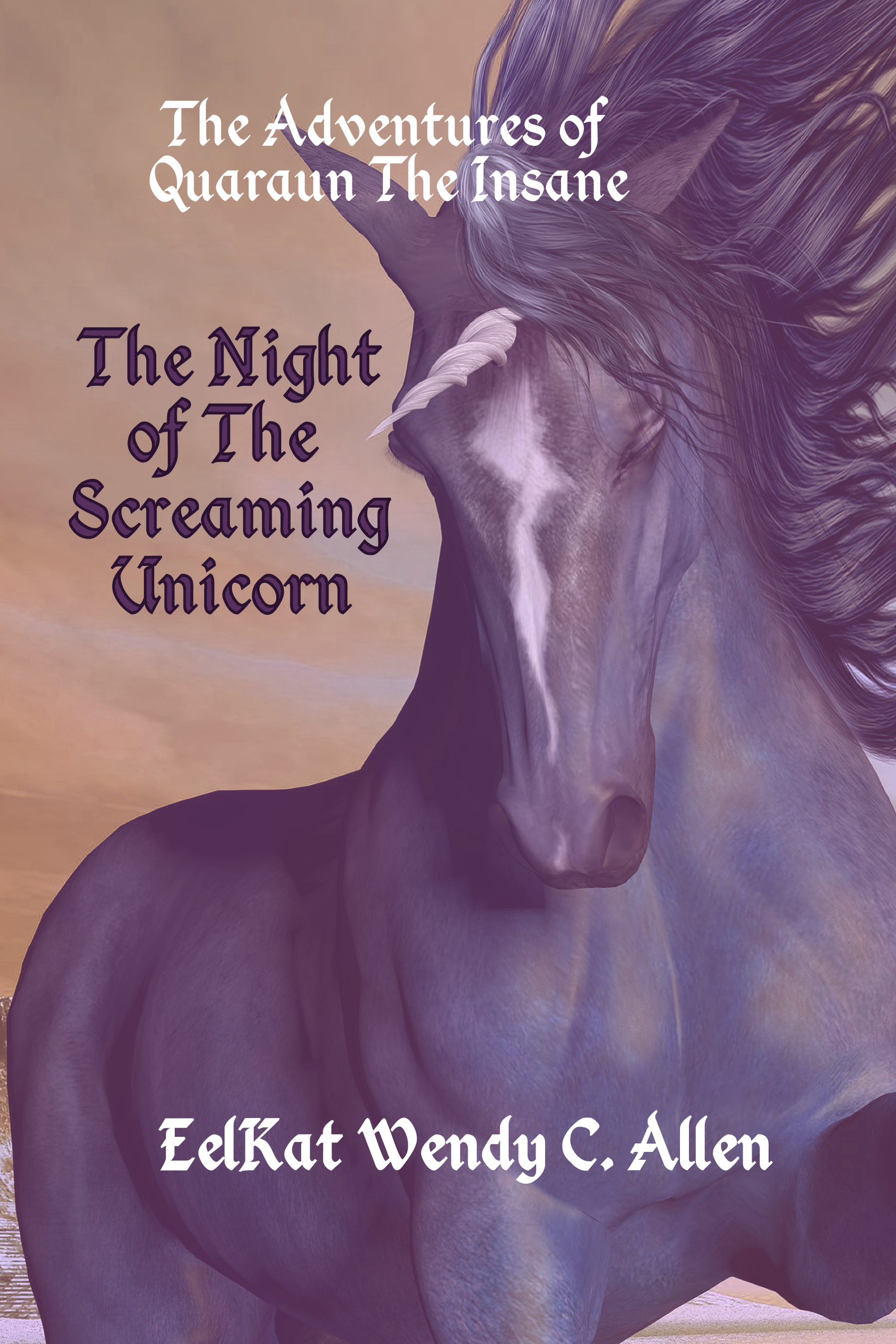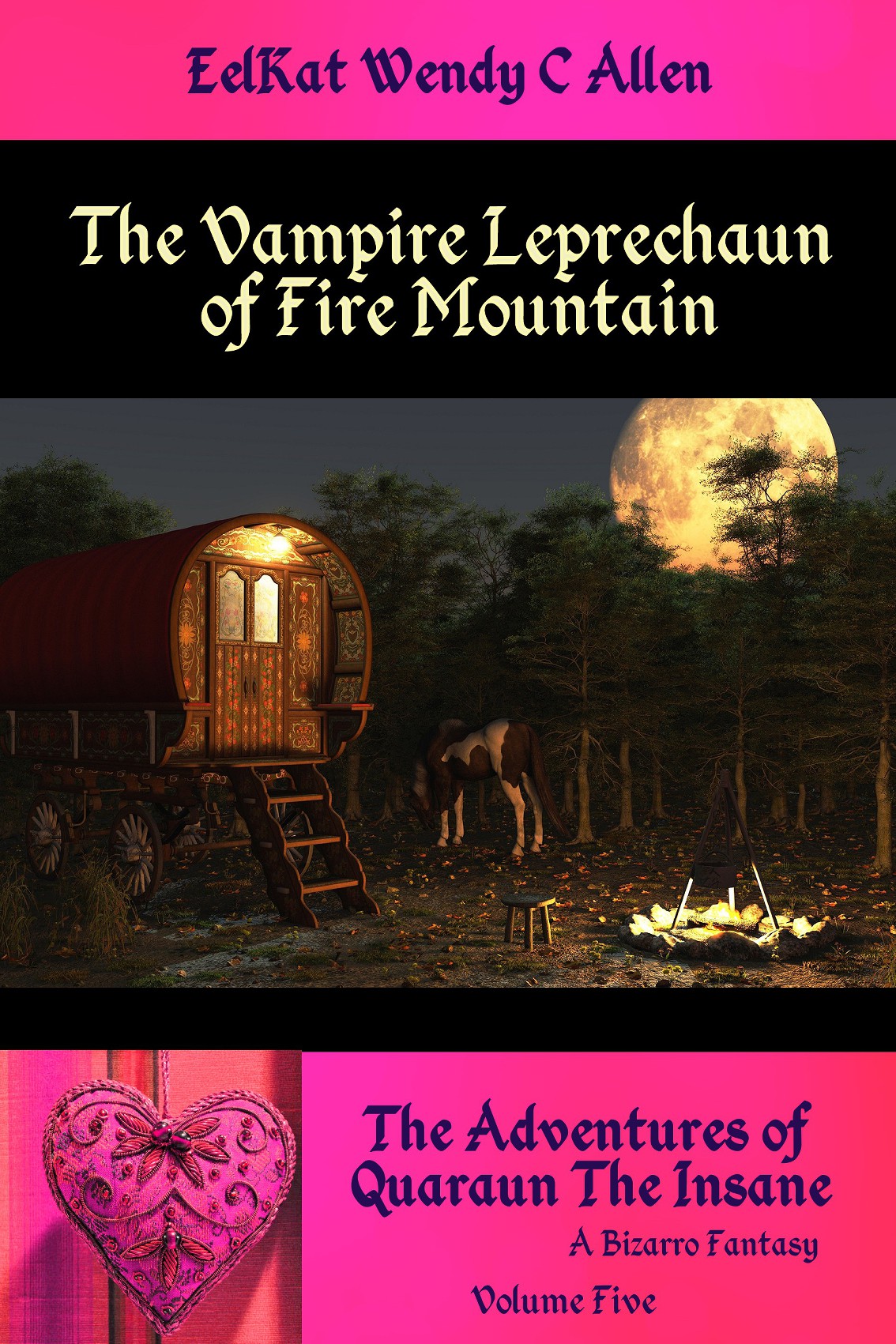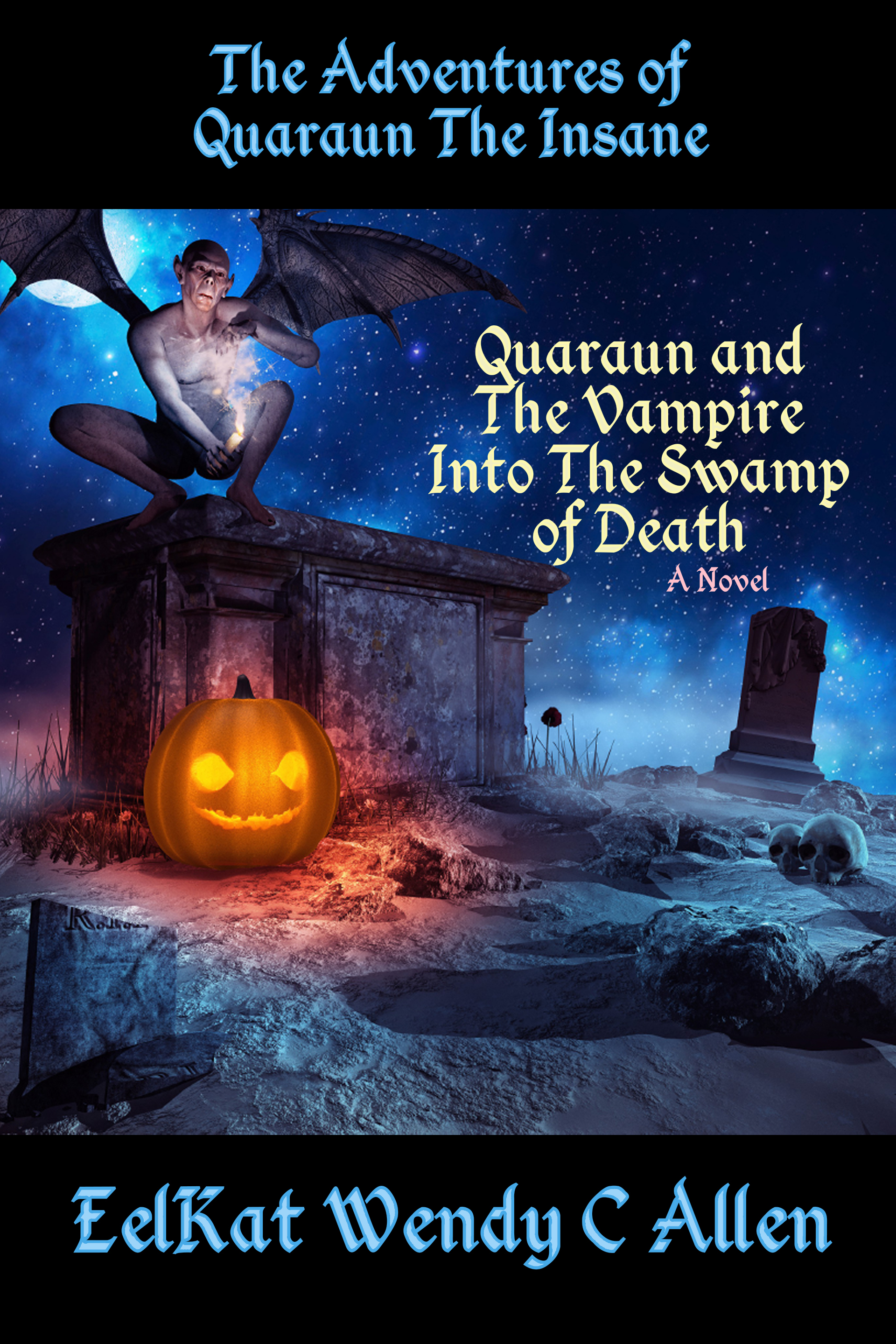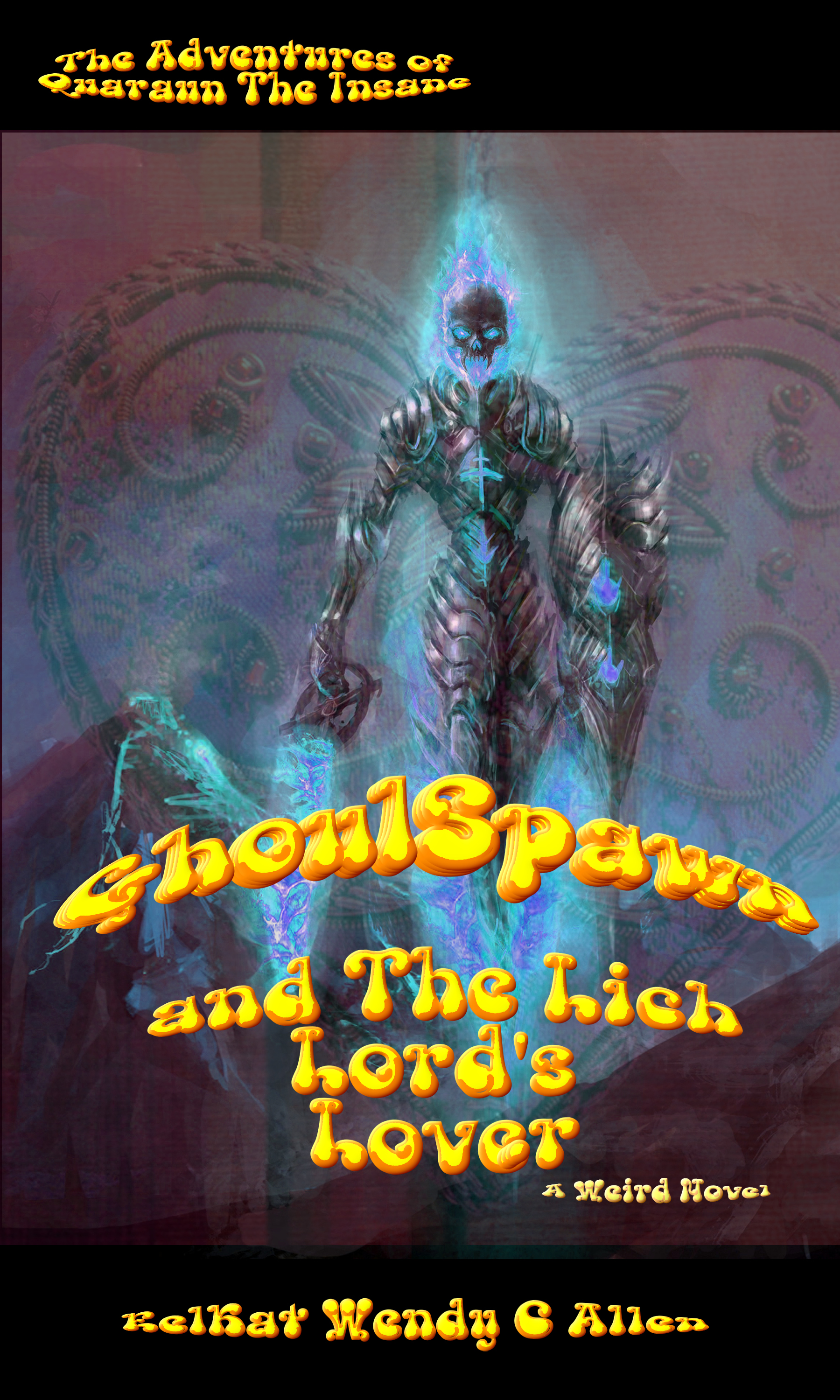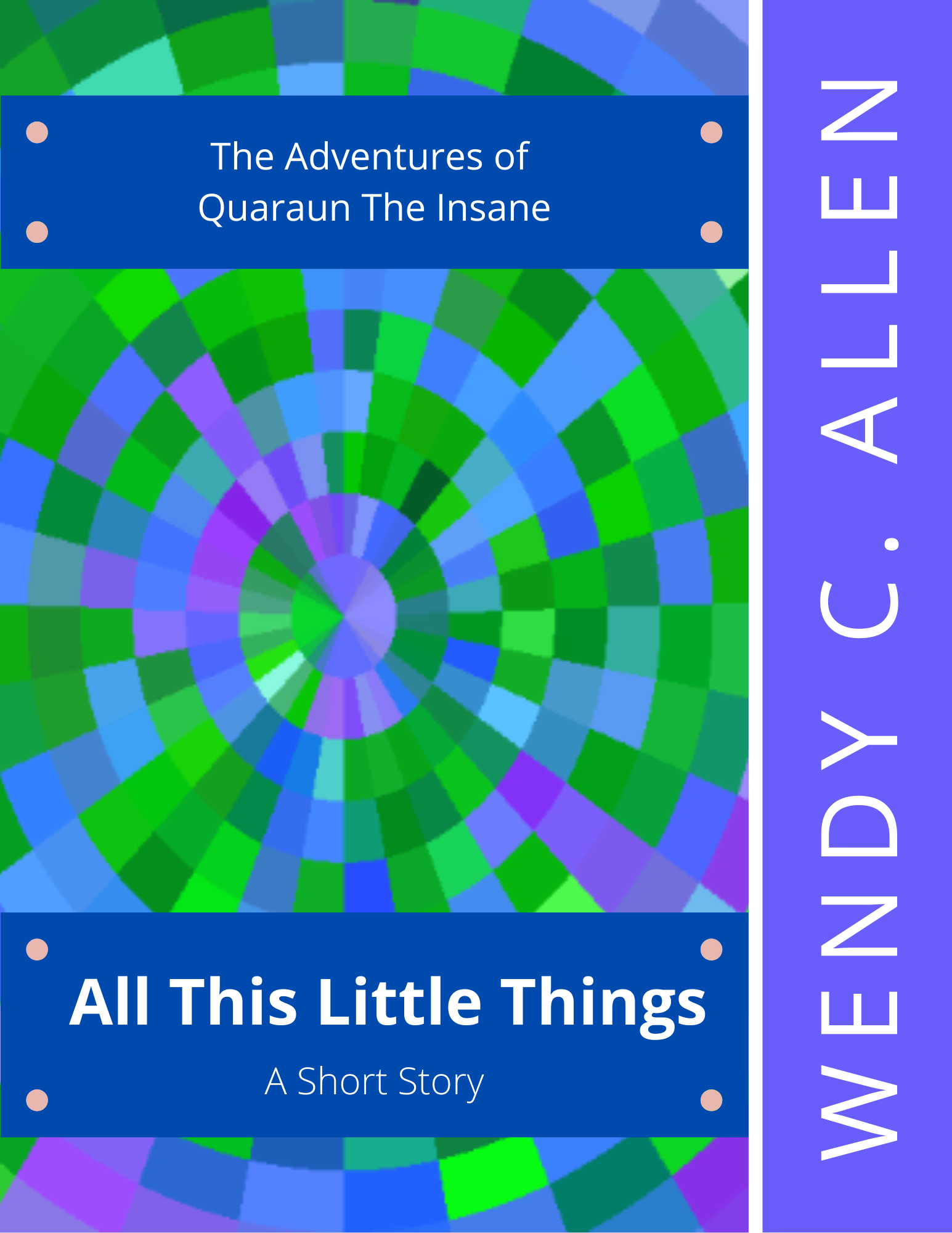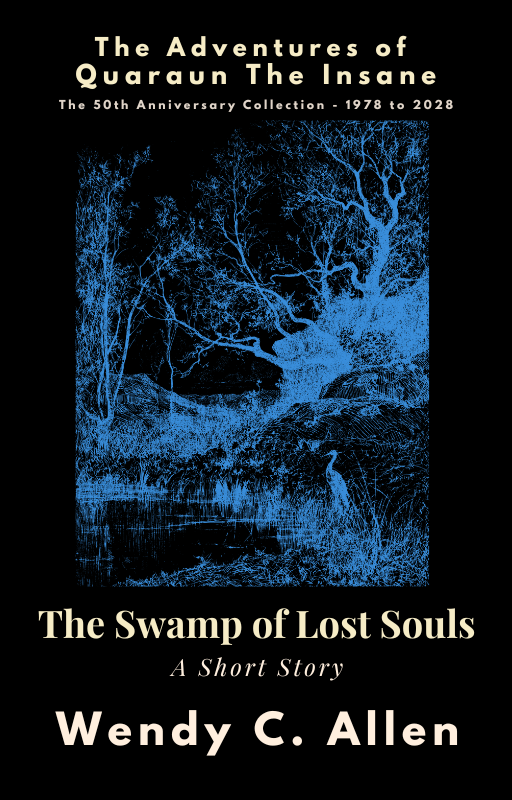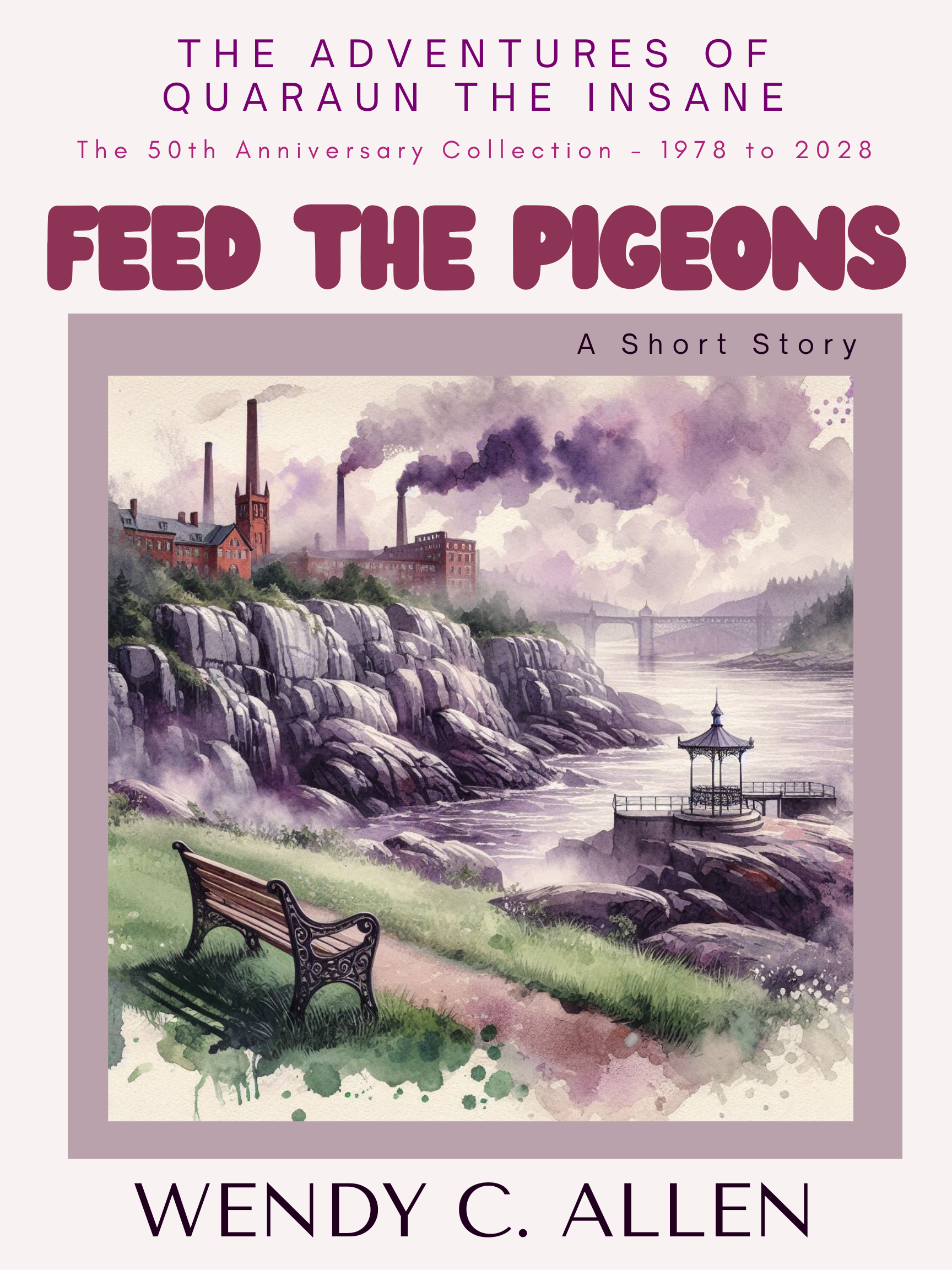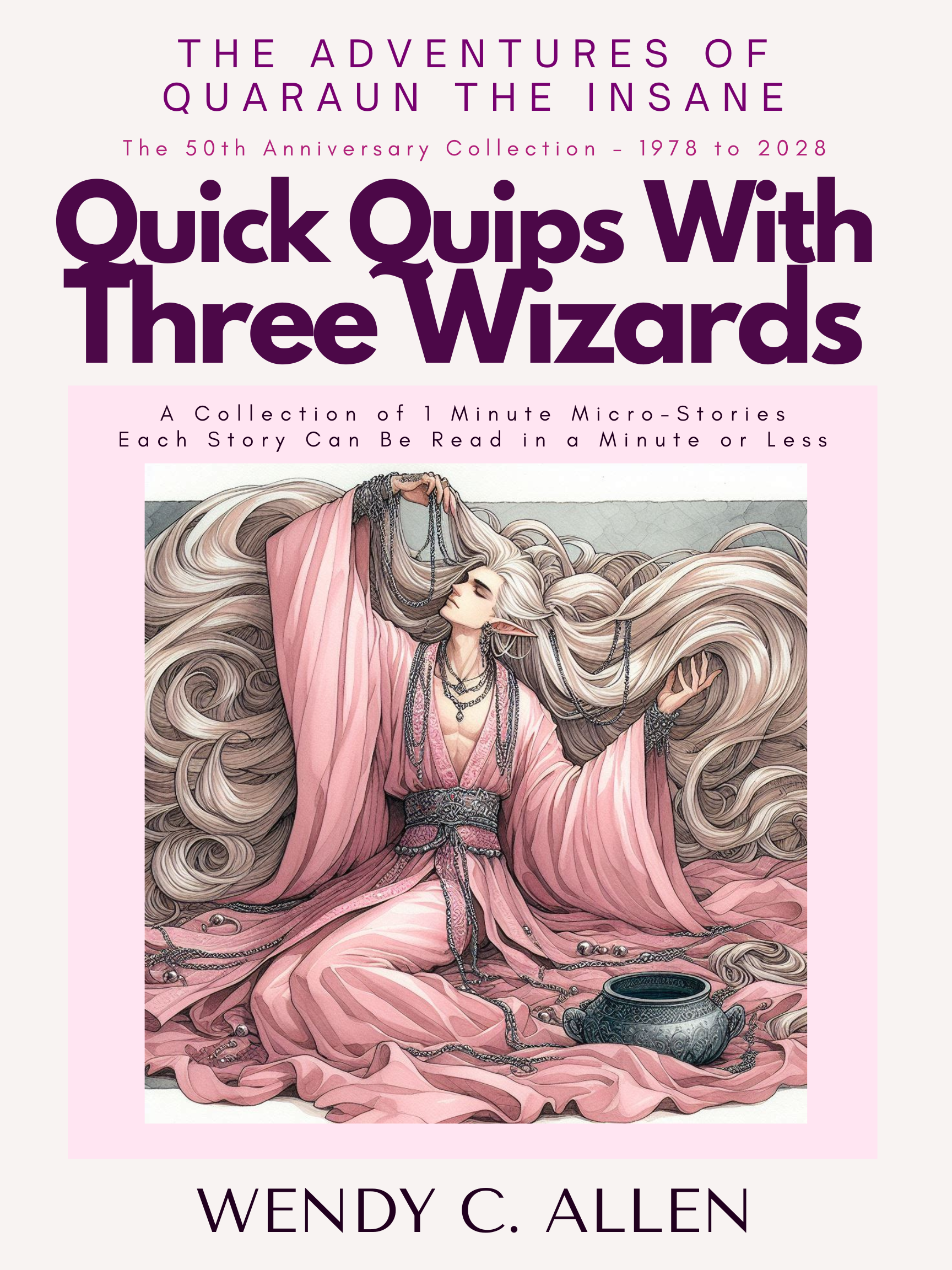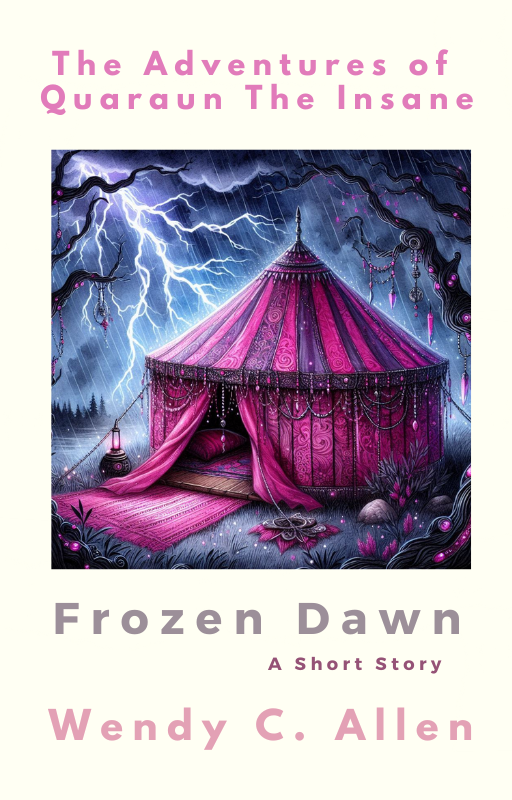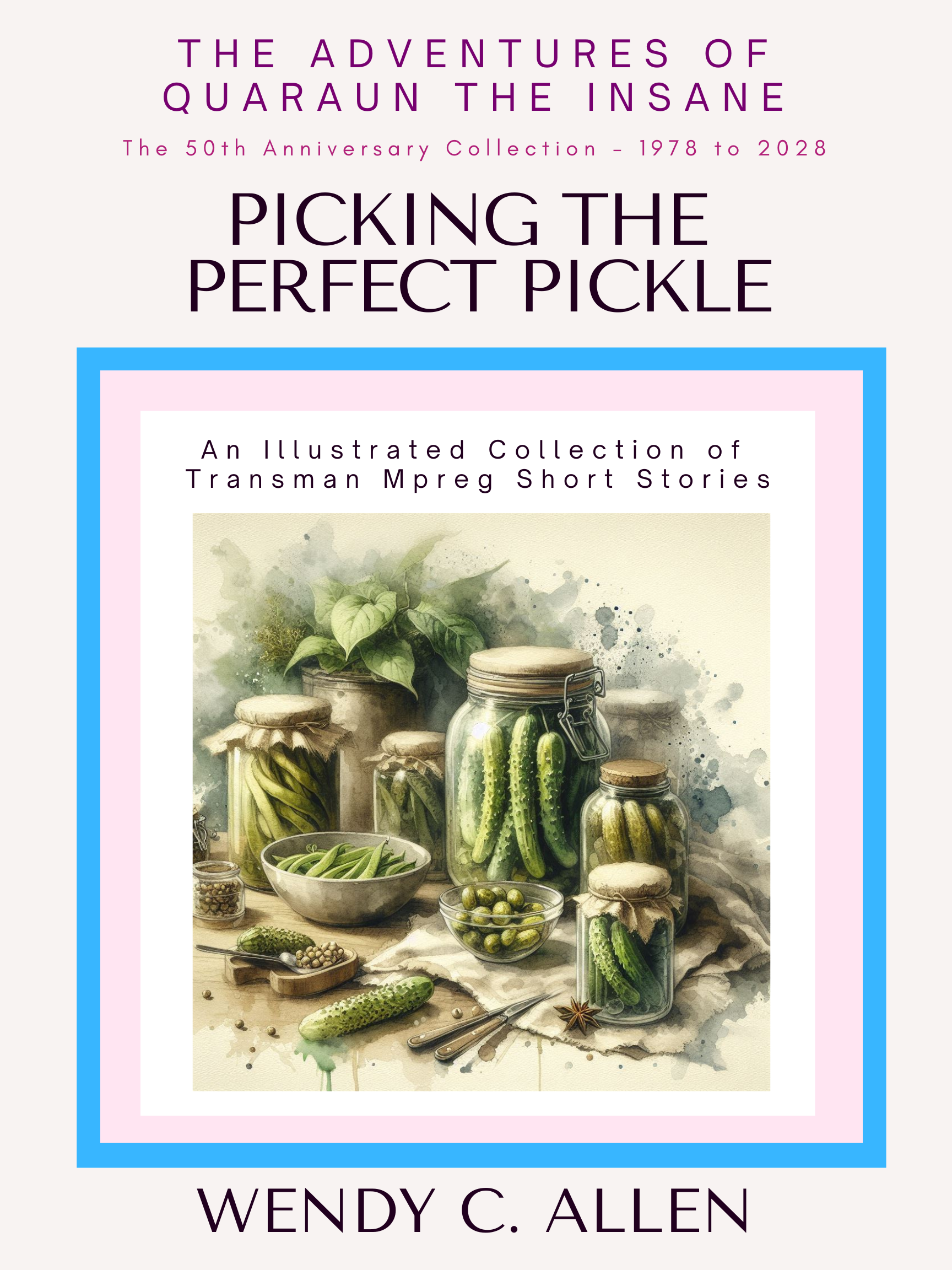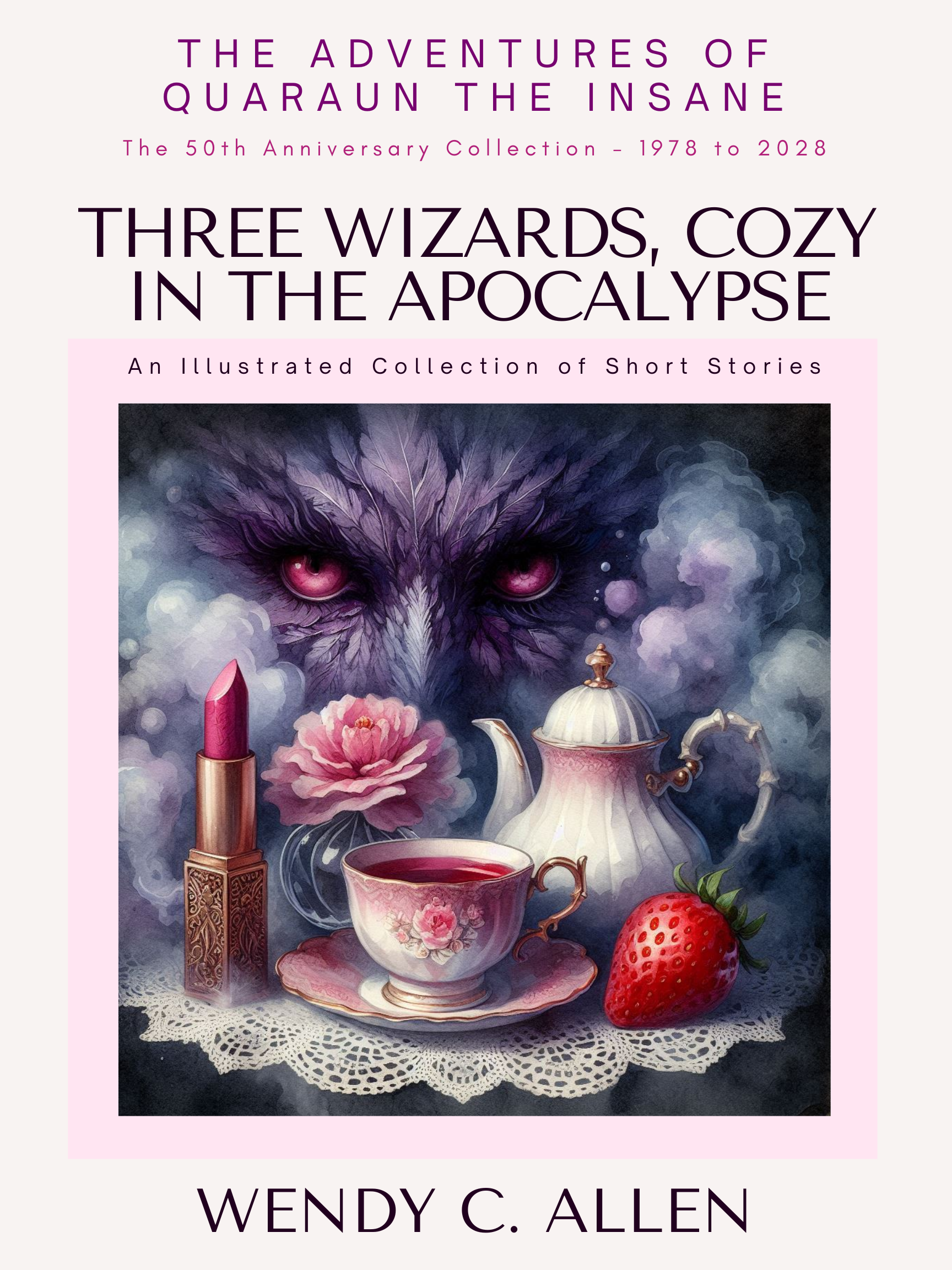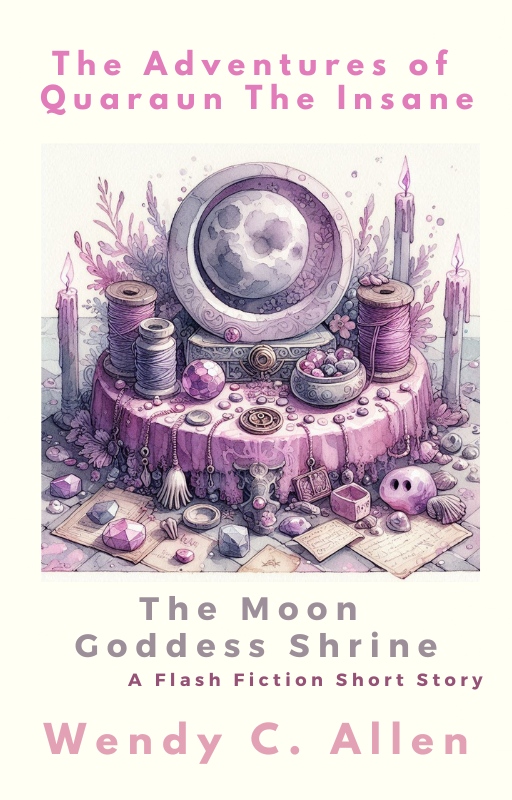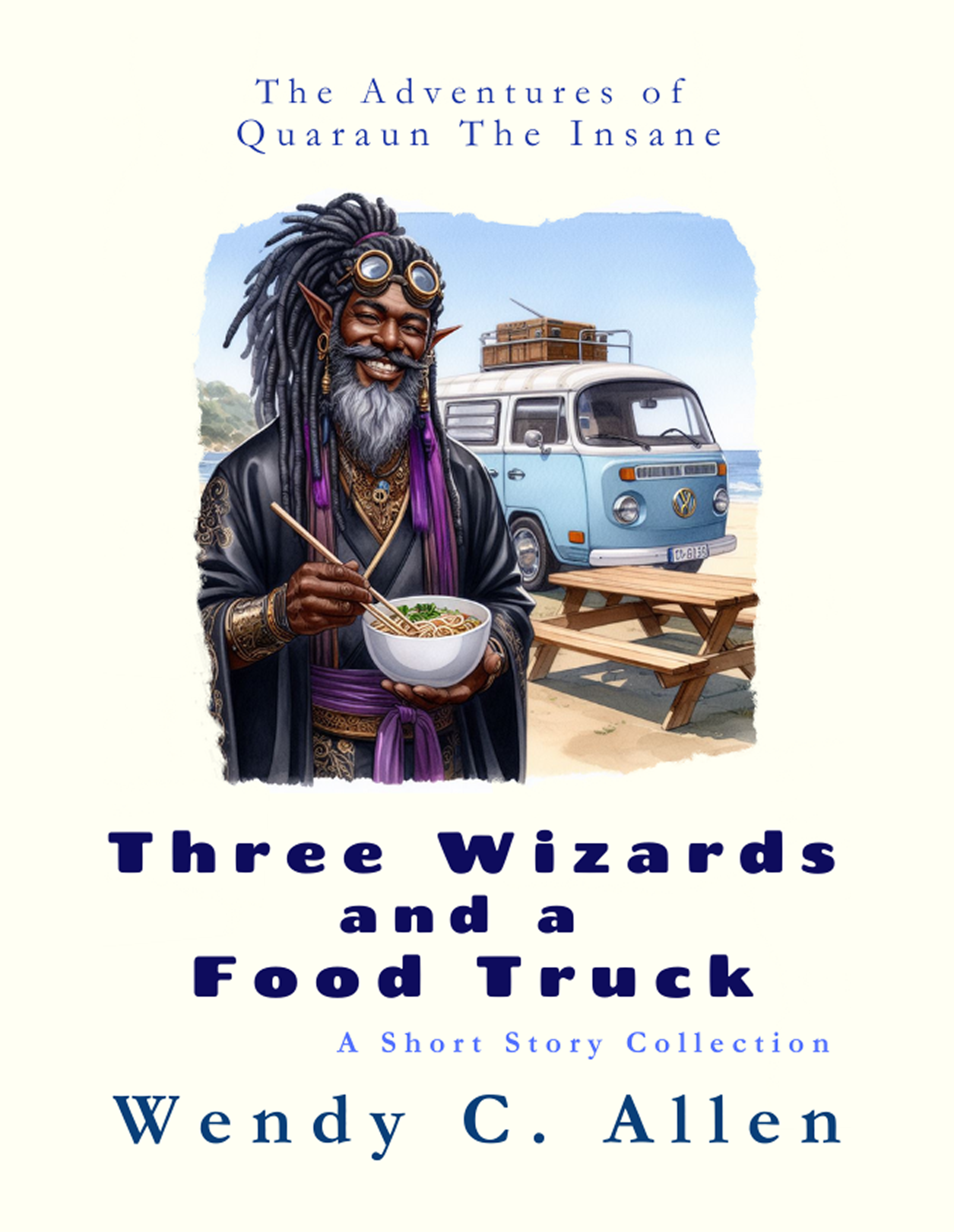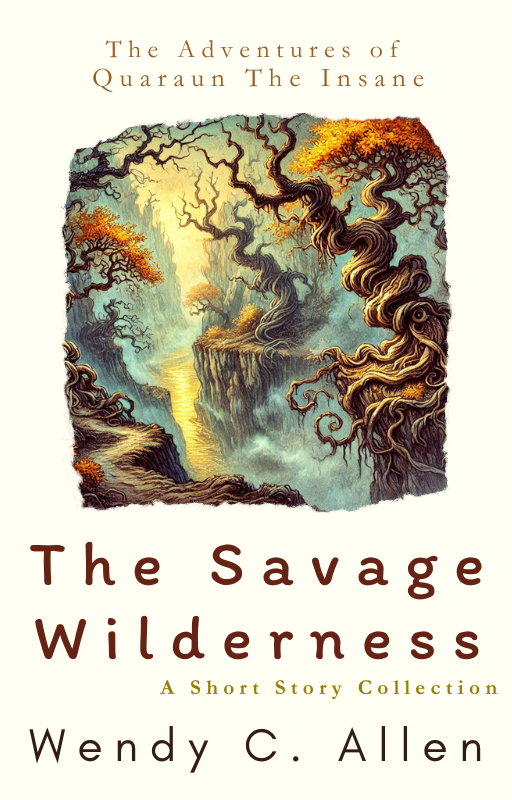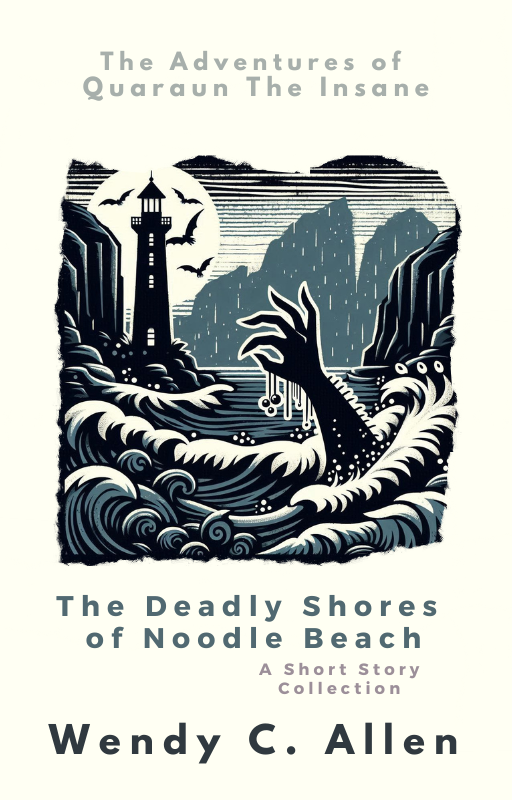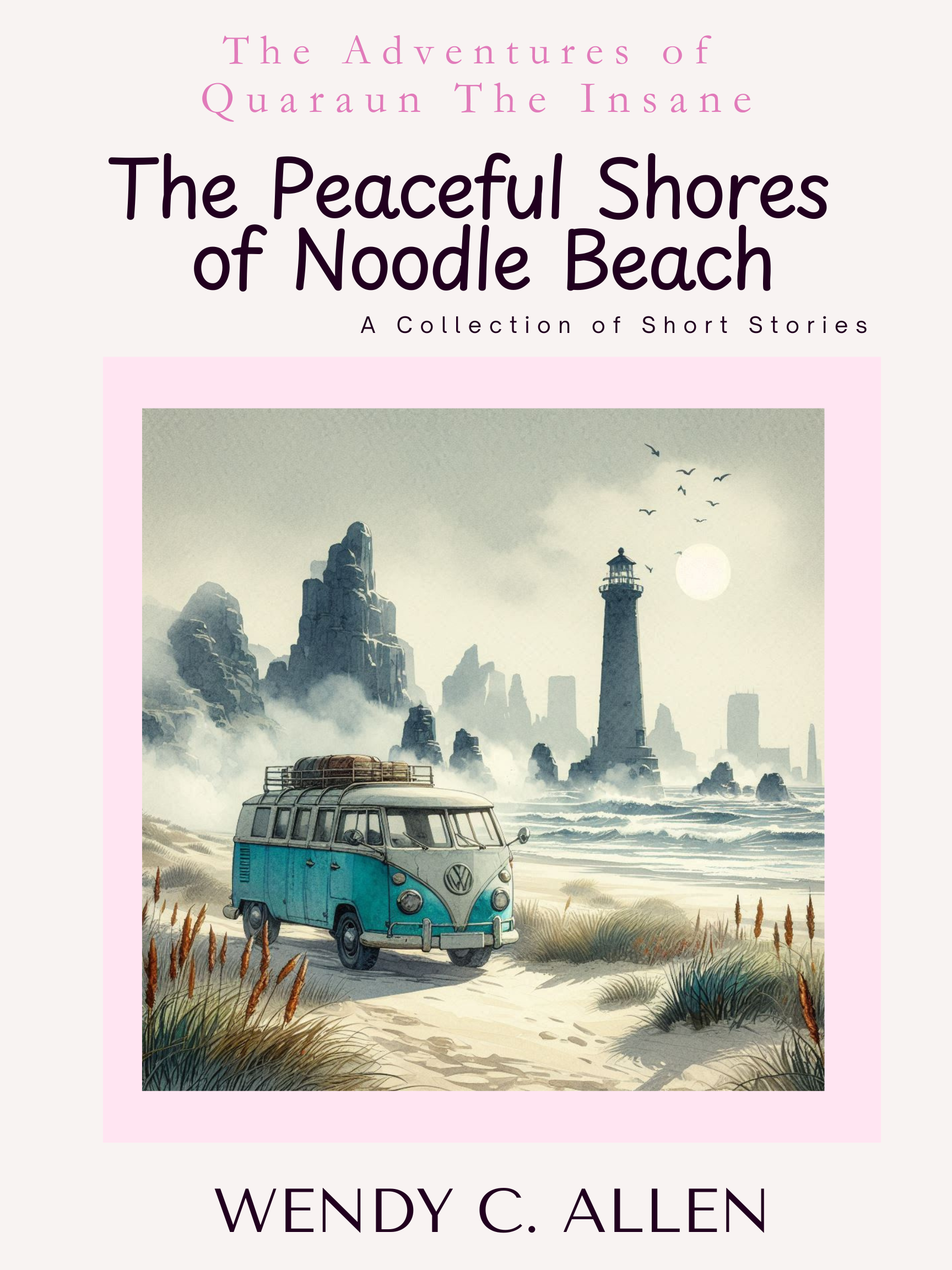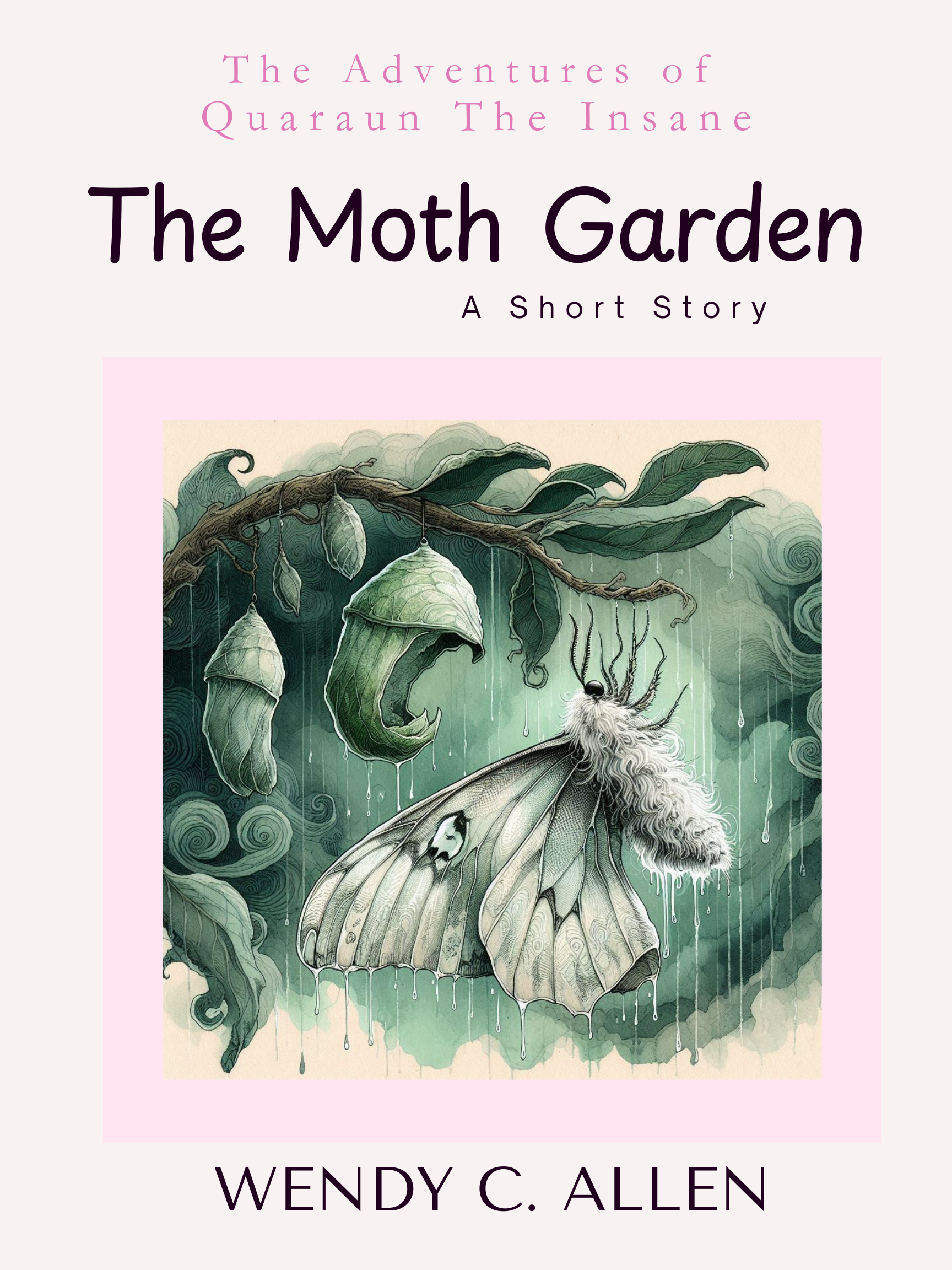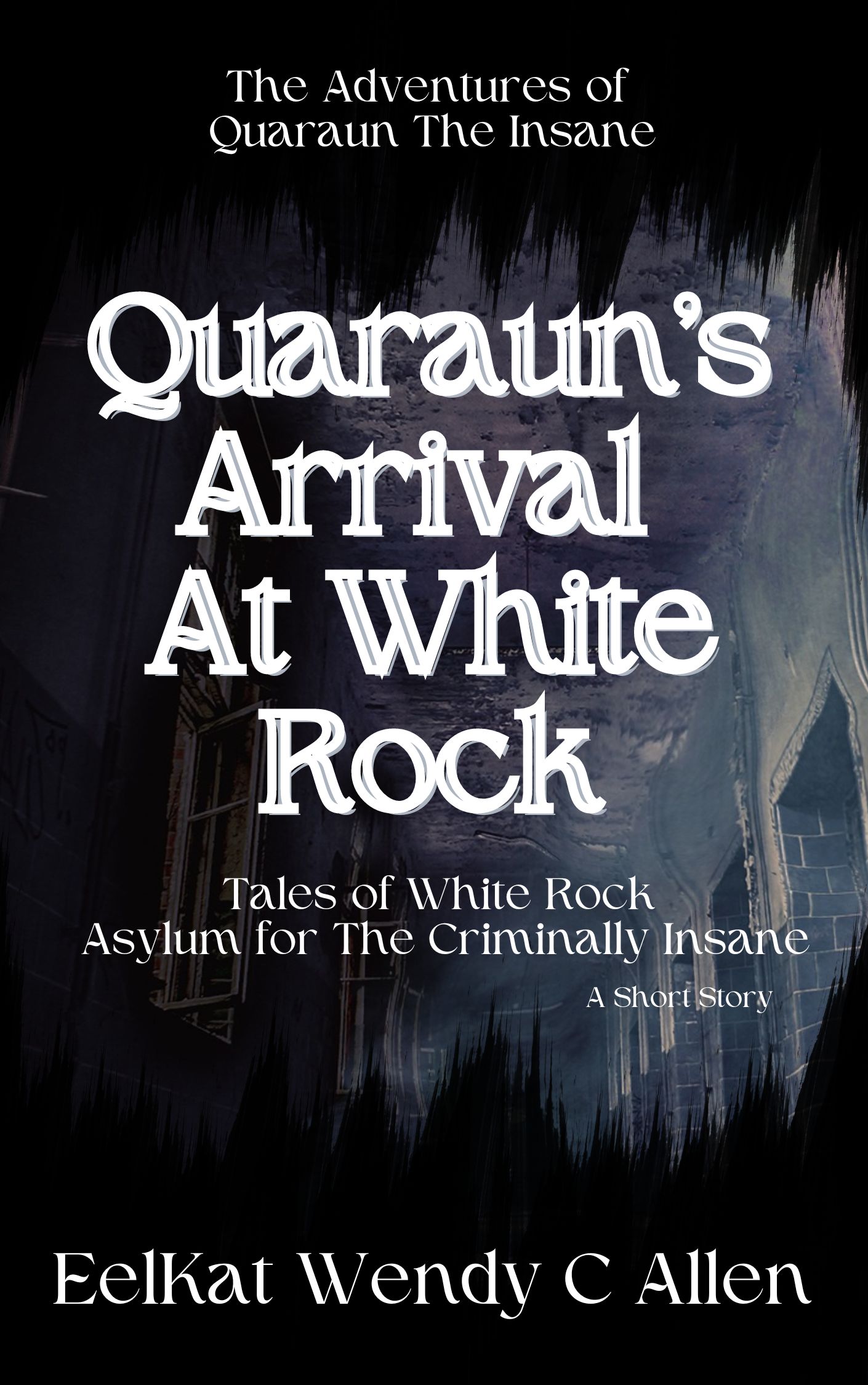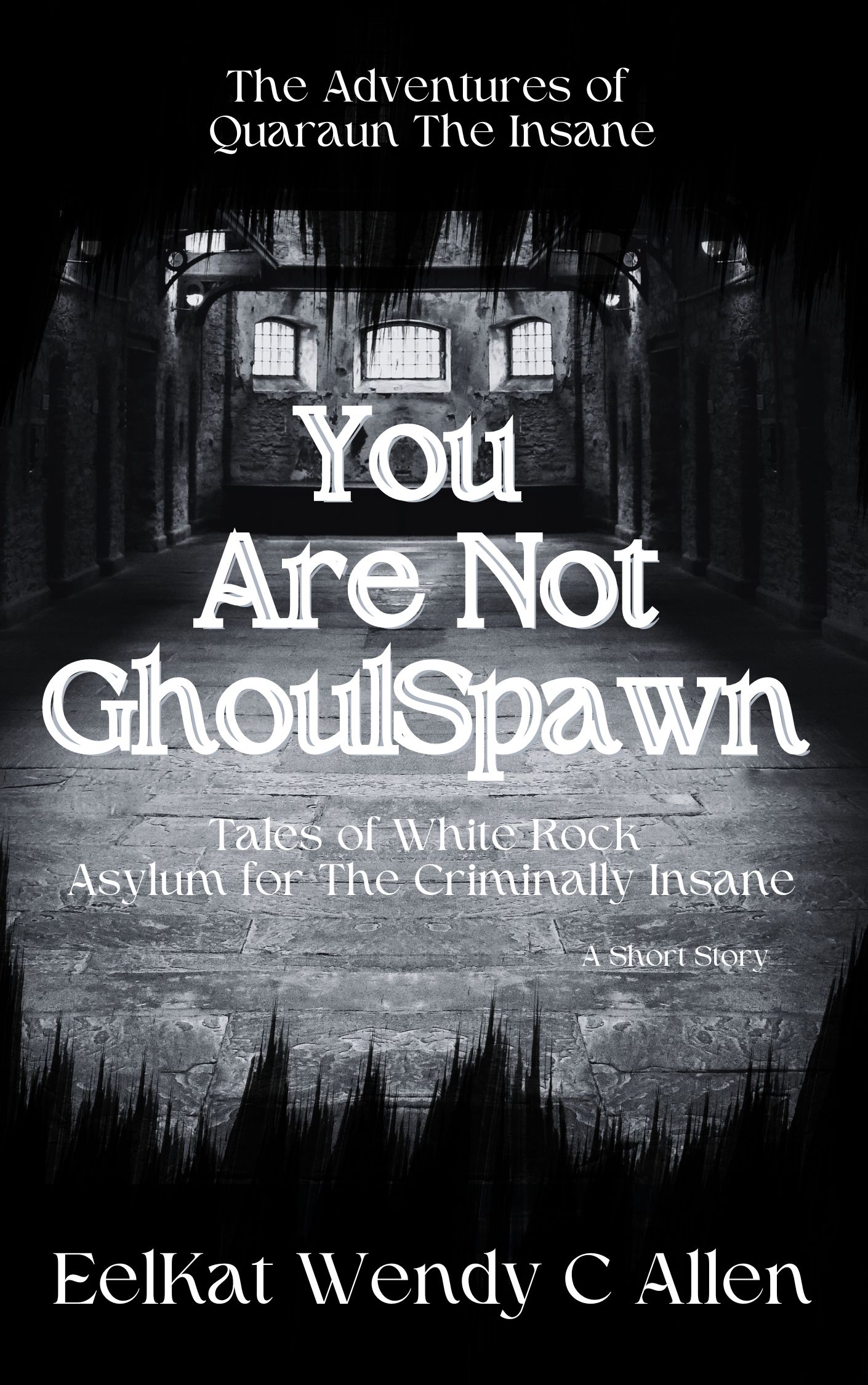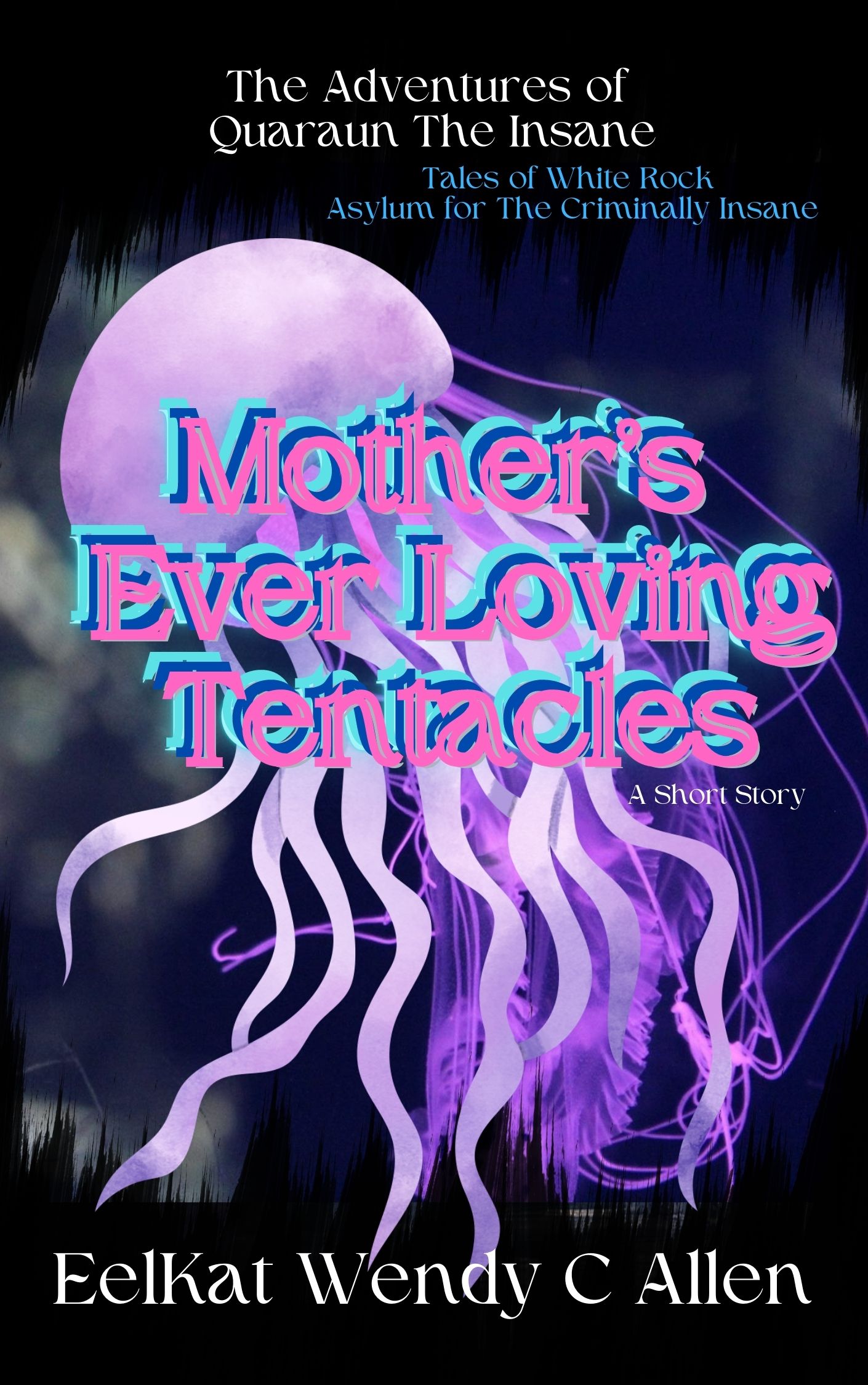Counting Down to the 2028 50th Anniversary of my first published book (September 23, 1978)
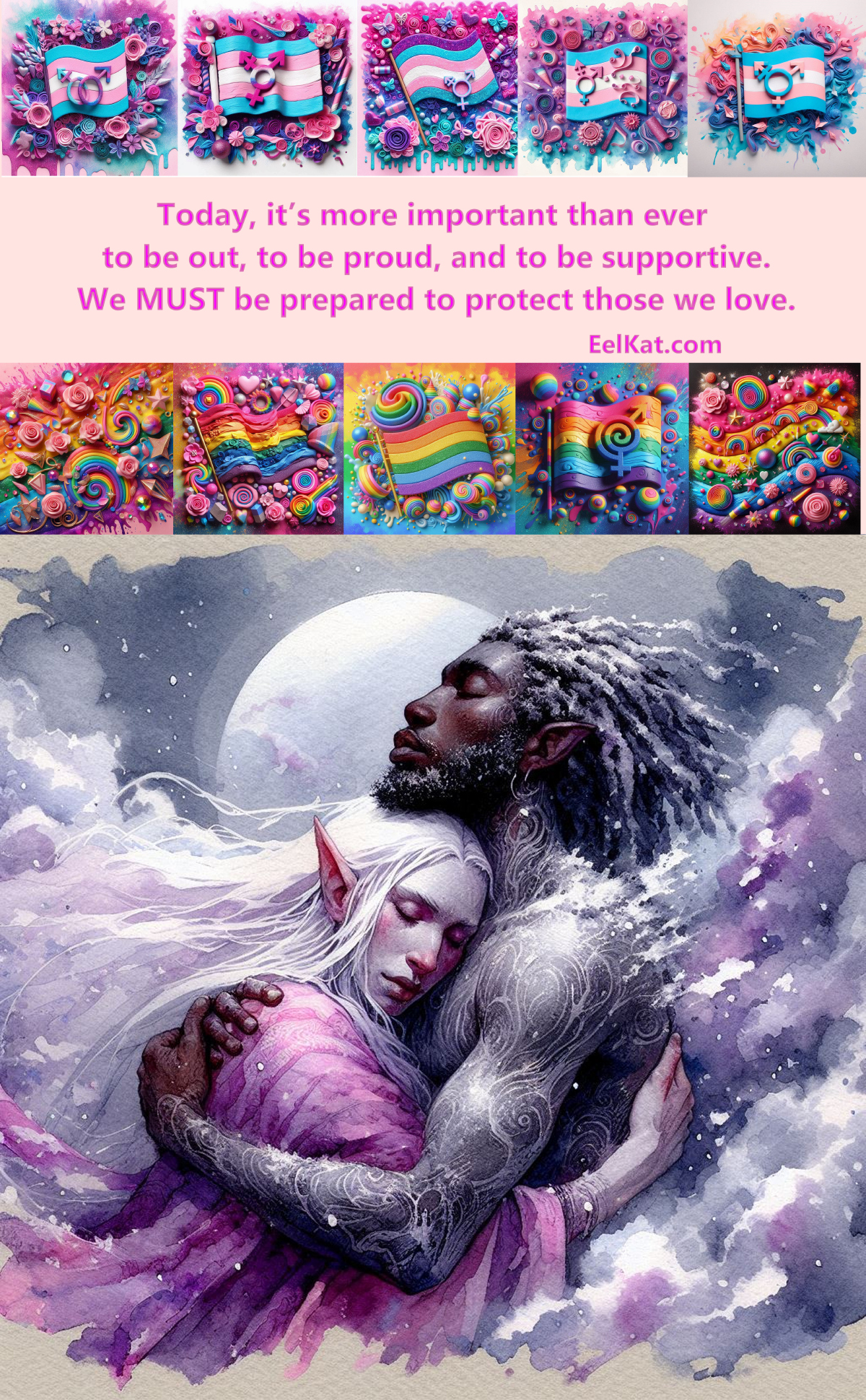 Transman Quaraun (The Pink Necromancer) and his husband King Gwallmaic (aka BoomFuzzy the Unicorn) King of The UnSeelie Court. Main characters of The Adventures of The Pink Necromancer series. Transman Quaraun (The Pink Necromancer) and his husband King Gwallmaic (aka BoomFuzzy the Unicorn) King of The UnSeelie Court. Main characters of The Adventures of The Pink Necromancer series.
|
This website is a safe zone for LGBTQAI+, pagans, polys, trans, neurodivergent, disabled, mobile aid user, minority, cosplayers, otherkin, furries, & BIOPIC communities.
If you are a hater, you can go fuck yourself.
Happy 2026!
It is our 30th anniversary here at Space Dock 13!
On the web since 1996!
You have encountered an extremely old website that continues to exist in old web ways, the same way it has done for now three decades.
In spite of being now 30 years old this year, started in 1996, it is still heavily active and old pages updated daily, new pages added daily, still now in 2026. All hand written, all hand coded (no AI), all by me, same as it ever was.
We Still Exist: The Old Web Did Not Go Away, You Just Forgot How To Find Us
|
This site was NOT designed for mobile devices (as they had not been invented yet when I created it) thus this site looks best on a computer, at 1280x768 or above. |
This is a very old website created in 1996, so, yes, javascript is needed for the site to work as it should. If things don't function, you may need to update javascript drivers on your device |
This site tries to be mobile friendly but it's been online since 1996, so old pages may not load right on mobile devices, and as this site has had pages added near daily for 30 years there are now over 20k pages here. |
Having started out in life as a GeoCities site, this site contains glitter, bright colours, blinkies, moving gifs, and other things the old web was known for. |
Writing Literary Slice of Life Fantasy Novels:
Knowing what to include when describing the surroundings of a scene.
Knowing what to include when describing the surroundings of a scene
Knowing what to include when describing the surroundings of a scene from r/writing
Knowing what to include when describing the surroundings of a scene
>>I know it's a broad question, but are there any general guidelines you guys follow when describing surroundings, features, and how detailed do you go when describing something?
It's different for each author, as each will have their own preferences and writing style. Than it's different within each genre as different genres have different reader expectations about it. For example on one extreme you have the Slice of Life genre which tends to be similar to a playscript style and has 70% to 90% dialogue with little to no description at all. But then on the other extreme you have the Epic Fantasy genre which tends to be only 20% to 30% dialogue and the bulk of the story being sweeping descriptions of vast world building landscapes and battle scenes.

There are dozens of genres in between those extremes, each with lots of variables. Then even within a genre, you have sub-genres that break away from the norm, so you will also see Slice of Life that is description heavy and Fantasy that is dialogue heavy.
A lot depends on the type of story the author desired to tell and their prefered writing style. So, lots of variables, means in the end there is no one correct, right or wrong answer.
You can literally include as much or as little description as you feel best suits your story and no matter which you choose, it's going to be the right answer, because ultimately you are the one in control of the story.
>>I know it's a broad question, but are there any general guidelines you guys follow when describing surroundings, features, and how detailed do you go when describing something?
What do I personally do?
I write Literary Fantasy, that follows the life of an elderly Elf wizard, once the world's most feared and most powerful necromancer, a former wizard-for-hire whom was in high demand and called upon by royals and governments the world over to solve their problems, defeat enemies, and get rid of monsters, he's now in the final years of his life and just wants to retire from wizarding and live a "normal" life for a change. The series (which currently has 130 novels and 2,000 short stories already published, 2018 being it's 40th anniversary and no plans to stop writing new stories for it) is on one hand Epic Fantasy that spans a HUGE world, and encompases time travel and portal magic, resulting in stories set anywhere from 938 to 2525, not only on Earth, but on planets in 3 solar systems as well, and alternate dimensions of Earth.
The whole thing is mapped out with many 3-ring binders full of charts and graphs and maps for every planet, every continent, every prividance, every town, that has ever appeared in the series.
The wizard himself lives in the 1400s, is a wandering vagabond, and travels on foot, walking 10 or 12 miles a day across a wide variety of landscapes as he treks across the entire planet. Meaning there are stories in deserts, forests, tundras, arctics, savanas, jungles, inland, on coasts, you name it. He's looking for a place to settle down, but his fame precedes him and people either fear and loath him, thus chase him away, or want to hire him for some quest or mission, thus he flees because he doesn't do that sort of thing anymore and just wants peace and quiet. He's forced to live on the road, traveling constantly to get any peace or quiet away from haters and adorerers.
The series follows his every day life as he travels. Sometimes he travels alone, and sometimes he travels with random strangers he met on the road, sometimes he joins a caravan and travels with them, but usually it's him and 2 other wizards (one a Faerie and the other a half-Elf/half-Demon) who are his best friends, just traveling aimlessly, with no end goal of where they want to go, them just following a road to see where it leads them.
A lot of the series reads like a travelogue road-trip/camping-trip as a result. If they find a town, they look for a inn or tavern or hay loft or some place they can sleep inside. So what of the series is not n the road, is usually in an inn or a tavern.
Now, logic would say that because of this set-up, I should be writing massive, sweeping descriptions of these vast myriads of locations, right?
But do I?
No.
Why?
Because even though the series is Epic Fantasy, genre wise, very High Fantasy with Elves and Dragons and magic, (the Elf wizard also has a pet Unicorn and a pet Dragon travelling with him); style wise it is Slice of Life Literary Fiction, following his very mundane everyday habits.
He could use magic to do everything. He can wave his wand and have a meal cook itself, but he's also actively refusing to use magic at all. He's used magic for everything his whole life and he doesn't want to rely on magic anymore. But having relied on magic for everything, means he has no clue how to cook, how to find food, how to grow food, how to build a fire, how to build a shelter, how to defend himself in a fight. Though he is an insanely overpowered wish granting, Di'Jinn wizard who can snap his fingers and make anything happen, he also desires to live a "normal" life like "common folk". He wants to live as though he didn't know magic existed.
Quaraun is continually frustrated with the simplest, most mundane of activities, because he was never taught how to do them and he sees other people do them with ease. He's used to grabbing his wand and poof he doesn't have to do a damned thing, so the series becomes a survival story of him just trying to figure out how to do common, ordinary things that everyone just knows how to do, but he's never done before. A large part of the plot is his struggle to survive without using magic.
In other words there is no action, no questing, no adventuring, no battles, no fights, no political intrigue, no wars, no wizard duels, or any of the typical stuff one would expect in the Fantasy genre. It's a very slow moving story that is pretty much like a video camera is just following him around every day as he hunts for food, cooks his meals, tends to his injuries, searches for a place to sleep for the night, then repeats it all the next day.
It's more or less an everyday look into the life of a common person who is not a hero and not on a quest and is just trying to live his life.
Shortly into the series, he meets up with the Faerie and they become lovers, but he's also sleeping with prostitutes in every town they visit which triggers a lot of arguing between him and his lover, bringing into the stories a very Soap Opera/Family Drama style to it.
Think of it as Little House on the Prairie meets Lord of the Rings and tossed into Days of Our Lives, and that'd just about describe it. Extremely NOT what you normally see in Fantasy, but very typical of what you see in Slice of Life Literary.
What this means is the stories are heavy in dialogue (as much as 90% dialogue in some of them) and VERY minimal in descriptions and narratives. It's 3rd person, told from the point of view of the wizard, and 9 times out of 10, if something is described, it's because he is talking about and or using that object.
So, what I do is this: The characters will be talking, while they are walking to wherever. One character will point out something. The other two will comment on it. The reader has now seen a limited glimpse of their surroundings and is left to fill in the blanks with their own imagination. For example:
"Dair be waterfall over dair," Unicorn interrupted Quaraun.
"What?"
"Waterfall," Unicorn pointed towards the nearby stream.
"I heard what you said. I was talking. You interrupted me."
"Dis morning ya did said ya wanted take bath. Now ya can. Iffy I had no interrupted ya, ya would have kept on talking un walk right by it."
Nothing describes the waterfall itself. Previously one character has stated "I love the smell of pine," cluing the reader that the forest is a pine forest. At other points a character said "This hill is too steep, I need to stop and rest a bit," telling the reader it's a hilly area. Another character saying "I told you these cliffs were too rocky for you" alerts the reader to it being a rocky hill, on a cliff. One character saying: "I hear seagulls" and one saying "I smell crabs and seaweed on the fog" is added to tell the reader this is a rocky, hilly, foggy, coastal, pine forest, on the edge of the ocean, without ever writing any description to say as much.
It's all very subtle clues that are mixed into character conversation, and moves the story forward, without stopping to describe paragraphs of scenery.
I tend to focus heavily on what characters are thinking and feeling. So, instead of describing the temperature of the water, I just have a character jump into the ocean, then run out screaming: "It's freezing cold! Look at me! I'm covered in goose pimples!"
I just feel like that is a more effective way of describing the fact that the ocean water is cold. This shows me the water is ice cold, without the narrator telling me how cold the water is. The dialogue is immersive and full of action and draws me in to his vivid response.
A lot of books will have scenes of characters bathing/swimming in nature and the scene will ramble on for 2 or 3 pages describing the water and the character. These scenes bore me. I think, for me, it feels less vivid, less immersive, less interactive. I'll be sitting there slogging through the description of how the clouds hid the sun and the wind blew and chilled the water. Often actual temperatures, how many degrees F or C the water is, blah, blah, blah.
Yawn.
I'll be thinking, yeah it's great that this book was written by a meteorologist who know how to describe how the weather caused the water temperature to drop, but I just don't care. I want to read a STORY not a TEXTBOOK. I want the characters to come to life and show me the action, I'm bored with listening to the author tell me about water temperature.
I'm very much a reader who prefers to be shown the action, rather then told it. Show don't tell is a very big pet peeve for me. The less dialogue the book has, the more telling the narrator is doing, and the less action there is being shown.
A book that is 75% description, is a book that is 75% telling. It's dull. It's boring.
A book that is 75% dialogue is a book that is 75% showing. It's lively. It's full of action.
Take a tavern scene for example. Everybody knows what a tavern looks like. Wooden building, thatch roof, dirt floor, maybe with hay or sawdust to soak up the goat pee, chicken poop, and drunkards' vomit. Wooden tables. Drunks with beer mugs. You can describe a typical tavern in one or two sentences. I just did. As I said, almost every scene that's not outside in nature is in a tavern, in this series, so I end up needing to describe taverns frequently. Often, that is the extent of the description. Just one or two lines, said by the narrator as the characters walk in the door. It quickly tells the reader what a tavern is: a medieval barroom/pub, that housed farm animals alongside drunks, and was a place travellers sought to rest between towns. (Most taverns in real life, were not in towns, but rather were at a crossroads halfway between towns, and were comparable to today's truck stops along the turnpike.)
As with anything else in the series, tavern scenes, get largely described in bits and pieces, throughout the dialogue of the characters. For example, you can tell the economy of the region by the type of drinks and food served. A character orders wine, fruit, and cheese and gets laughed at, you know it's a poor region that drinks ale and beer and eats dried jerky and bread. But if the barmaid just brings out the wine, fruit, and cheese, well, now the reader knows this is an upscale place that has expensive food in their larders.
Likewise a character will say: "It's hot and sweaty in here", telling the reader about the comfort level of the environment, without any need for the narrator to describe how hot it is in the building. So, once again, you see the descriptions being minimal, and dripped inside of dialogue.
By putting it in the dialogue, the descriptions are VERY short. In real life, people talk in banter, no one ever getting more then a few words out before the next person interrupted. I write the character dialogue this same way. Thus you never see full blown description. The character doesn't spend a paragraph describing things. He just says one quick line, usually fewer than 10 words long, before he's interrupted. This means, that me as the author, I have to drop snippets of descriptions in quick and fast, and do so without interrupting the flow of the conversation. A character says what he has to say, then ends it with "Damn this beer tastes like piss" and the next character moves in and says his piece, and probably will add a comment about the beer as well.
Thus you have the story going forward, AND a sub-dialogue about the shitty quality of the beer, which acts to describe the quality of the tavern itself as well.
Now, I could have instead, stopped the conversation, to let the narrator jump in and describe the beer and how poor quality it was, but, by having the narrator describing the beer, I will have now, stopped the story in it's tracks, forcing the reader to push the story aside to listen to the narrator yak away.
Whereas, by mixing snippets of mentions of the beer, into the dialogue, the story never stops, and the reader is not forced to sit their waiting for the info dump to end so they can get back into the flow of the story once again. THIS, is why I prefer to write almost no descriptions, and instead weave these tiny snippets into the conversations instead.
Also, these snippets help tell the reader about the character.
Remember that waterfall scene back there?
Not only does it show the reader the scenery around them, but it also alerts them to the fact that Quaraun was very self absorbed in his conversation just then, as he did not notice the waterfall. This tells the reader he's very concerned about the issue he was talking about, possibly very upset by it.
The fact that Unicorn did notice the waterfall, also alerts the reader to the fact that he was bored with what Quaraun was saying and was not paying attention to him and was instead looking around at the scenery, thus he spotted the waterfall.
Unicorn was not interested in what Quaraun was saying so saw nothing wrong with completely derailing his thought process to change the subject to bathing and waterfalls.
The reader now not only knows where they are, but also knows the emotional state of the characters nd knows that one is upset by something but the other doesn't care. And the readers knows all this, just from the dialogue without any need to have a narrator telling them these things in a descriptive info dump.
Even when writing sex scenes I do this. I know a lot of writers ache and worry and fret and stress out over writing sex scenes, because they think they have to describe body parts in detail, but I love writing sex scenes and find them very easy to write. I'm often baffled over why so many people fret so much over writing sex, but then they'll show me a sample of they attempts to write sex and then I understand the trouble. You see, in sex scenes I write, my characters do a LOT of talking. And it's not always sex talk either. It's just random everyday stuff about their day. What they thought about their lunch or whatever, intermingled with stuff like "Does that feel good?" "Do you like that?" "Oh, it feels so wonderful being inside you." Sex is happening during the conversation, but you are not seeing body parts on parade.
Most sex scenes I write last 10 pages, but one went on for 33 pages. And then people (other writers) look at that and say "OMG! I can't even write enough description to fill in a full paragraph, how did you make a sex scene last for 33 pages?" How? By NOT focusing on description, and instead letting the characters talk about what they were feeling.
When you start telling about sex/describing body parts, you run into a very limited amount of things you can say. He put this in there. Tab A was inserted into tab B, then they both jumped around until juice came out. Great. Everyone knows that's how sex works. It provides nothing for the story. And it's difficult to get the scene more than a few sentences long. However, when you start showing the action instead, letting the characters talk, they draw the reader into the sex scene, it becomes vivid and immersive, as the reader hangs on their every word.
When I do describe things, I tend to focus heavily on the senses. So, rather than just the narrator dead end describing in mid air, a character will hear, smell, feel, or see something. Again these will be quick and usually one-liners like:
- He heard a shrill shriek that sent shivers down his spine.
- Looking down over the edge of the bridge at the water so far below, made his toes want to curl up and hide at the backs of his shoes.
- The rank smell of wet, moldy, sour hay filled his nostrils and made him nauseous.
>>Do you only describe relevant things to the character(s) or scene, or do you like to give as many visuals as you can, whether it's interacted with or not?
Generally, yes, I only describe what is directly connected to the character in the scene, and then only if it somehow applies to what he's doing. If he's not going to interact with it, it probably won't be described at all. As a reader, I prefer character driven stories and get very annoyed anytime the dialogue stops and the author starts describing clouds and grass and mountains for page after page of none-stop scenery info dumping. Now, some readers like that sort of lengthy descriptions, so knowing what your audience wants to read is going to help you decide to go minimal, info-dump, or something in between. But, me, I'm the type of reader who likes the fast flow of dialogue and stops reading when the slow slog of descriptions appear, thus, when I write, I write the style I like to read. It's just a personal preference thing. Basically I write what I want to read, and since I like reading quick snappy dialogue that isn't being invaded by the narrator describing things, I end up writing quick snappy dialogue that isn't being invaded by the narrator describing things.
So, in the end, I think it boils down to a preference thing. Some readers like lots of descriptions. Some readers like lots of dialogue. Some readers want a balanced mix of both. I don't think any way is right or wrong, and that each method is just a personal preference thing. Thus I say, just write as much or as little description feels right to you. Then after you're done writing it, if you feel you've written too much or not enough descriptions, well, that's what editing is for. Add, delete, arrange and move, until it feels right to you.
Normally, I'd tell a person to look at what they enjoy reading, and write that same style, because chances are if you enjoy reading a certain style, you'll also enjoy writing that style as well. You say you don't read. That could make it difficult for you to know what style you like, but not impossible. It just means you'll need to do more experimenting with writing different styles until you find one you like best. Perhaps, try this: look around for novels the same genre/theme as your story you want to write. Buy 5 or 6 books, each by a different author and read them, paying attention to differences and similarities in each. See if you notice any trends of writing style showing up in your chosen genre, then try to mimic writing those styles and see if you like writing that way or not.
This page was written by Wendy Christine Allen of 146 Portland Ave, Old Orchard Beach, Maine.
All Rights Reserved.
While there are around 20k pages on this website, most of them are blocked from search engines, with only around 800 of them available for appearing in Google/Bing/etc search results. The remainder can only be accessed via the various links found throughout this site. This was done deliberately on my part, and I did it because the bulk of the pages on this website are chapters from 138 novels and 423 novellas, so only the first page of each novel and novella indexed by search engines, and the remainder are linked in order, one page at a time, via clicking "next page" at the end of each. So if you are looking for a specific page from a specific novel, Google can't help you.
|
Thank you for stopping by and have a nice day! ꧁✨🌸🔮🦄🔮🌸✨꧂ And if it’s your birthday today: ִֶָ𓂃 ࣪˖ ִֶָ🐇་༘࿐꧁ᴴᵃᵖᵖʸ☆ᵇⁱʳᵗʰᵈᵃʸ꧂🤍🎀🧸🌷🍭 |
 |
Get an email whenever Wendy Christine Allen 🌸💖🦄 aka EelKat 🧿💛🔮👻 publishes on Medium.
I also write on these locations: | Amazon | Blogger | GumRoad | Medium | Notd | OnlyFans | Tumblr | Vocal |
Important:
Fraudulent sites are impersonating Wendy Christine Allen.
- The ONLY official website for Wendy Christine Allen is www.eelkat.com
Fraudulent social media accounts, particularly on Reddit and FaceBook are impersonating Wendy Christine Allen.
- The ONLY official social media accounts for Wendy Christine Allen are listed in the footer here at www.eelkat.com
Find Me on Social Media:
- Amazon: Author Central
- Amazon: Quaraun Series Index
- Blogger
- CafePress
- DeviantArt
- FaceBook (Profile)
- FictionPress
- Gravatar
- GumRoad
- Lemon8
- Medium
- Notd
- OnlyFans
- PayPal
- Reddit 1 (Primary)
- Reddit 2 (Alt; Archived)
- SpoonFlower
- TikTok
- Tumblr
- Twitch
- Twitter (X)
- Vocal
- WordPress
- YouTube
- YouTube Shorts
- Zazzle: My Art
- Zazzle: Quaraun Merch
Any websites and accounts you find online that are NOT on this list are NOT Wendy Christine Allen
